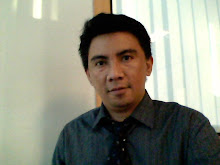
Men, put down that double cheese burger and listen when women tell you that you are often clueless about good nutrition.
Women tend to be more proactive about their health and seek nutritional advice more often than men, who tend to vie food as a matter of enjoyment.
A 2005 study in The Journal of Men’s Health and Gender noted that this difference in attitude may be linked to the trend of men being more likely to be overweight. Nutritional woes of aging men include decreased metabolism. This means an even higher risk of weight gain, said dietitian Pauline Chan, managing director of The Nutrition Place. With decreased metabolism, a high-fat diet can lead to obesity and cause health problems like heart disease, high blood pressure and even stroke, : she said.
Instead, they should eat easily digestible and nutritious food, as their ability to absorb nutrients tends to be less efficient, said Jenny Goh, a senior nutritionist at Fitness and Health international. However, meeting dietary requirements may be trickier for men, as they require slightly more nutrients than women due to higher body weight and energy demands, said Chan.
“unbalanced diets or diets with inadequate nutrients increase the risk of malnutrition and nutrient deficiencies, bone fractures, infections and overall decline in health status, “ she said. “Such consequences of poor health may even lead to depression.”
Nutrients that older men may lack are vitamins C and D, the minerals iron, calcium and zinc, protein and fiber. Some nutrient-packed foods to include in one’s diet are wholegrain bread, oatmeal, steamed meat, fish, tofu, leafy vegetables and low-fat milk, she suggested.
Vitamin D deficiency, a longstanding problem for older women, has recently been found to be common in older men as well. An American study published this year determined that 26 percent of older men aged 65 to 99 are vitamin D-deficient, with 72 percent not meeting the optimal intake of this vitamin.
Hence, one should also get enough sunlight to enable the skin to produce vitamin D, which is needed in calcium absorption for stronger bones, added Goh.
“The housebound and those living in institutions may face a higher risk of vitamin deficiency, “she said. “ Vitamin D supplements should be considered in such cases.” Older people should also go easy on salt. Their taste sensitivity decreases with age, which leads to greater preference for salty foods. “High salt intake can worsen existing high blood pressure, “Chan warned. Older men should cut down on condiments like soy sauce and choose natural alternatives like herbs and spices to enhance taste, she said.
Those who suffer from loss of appetite should try eating small but frequent meals, advised Goh.
Poon Chian Cui/ THE STRAITS TIMES/ANN

No comments:
Post a Comment